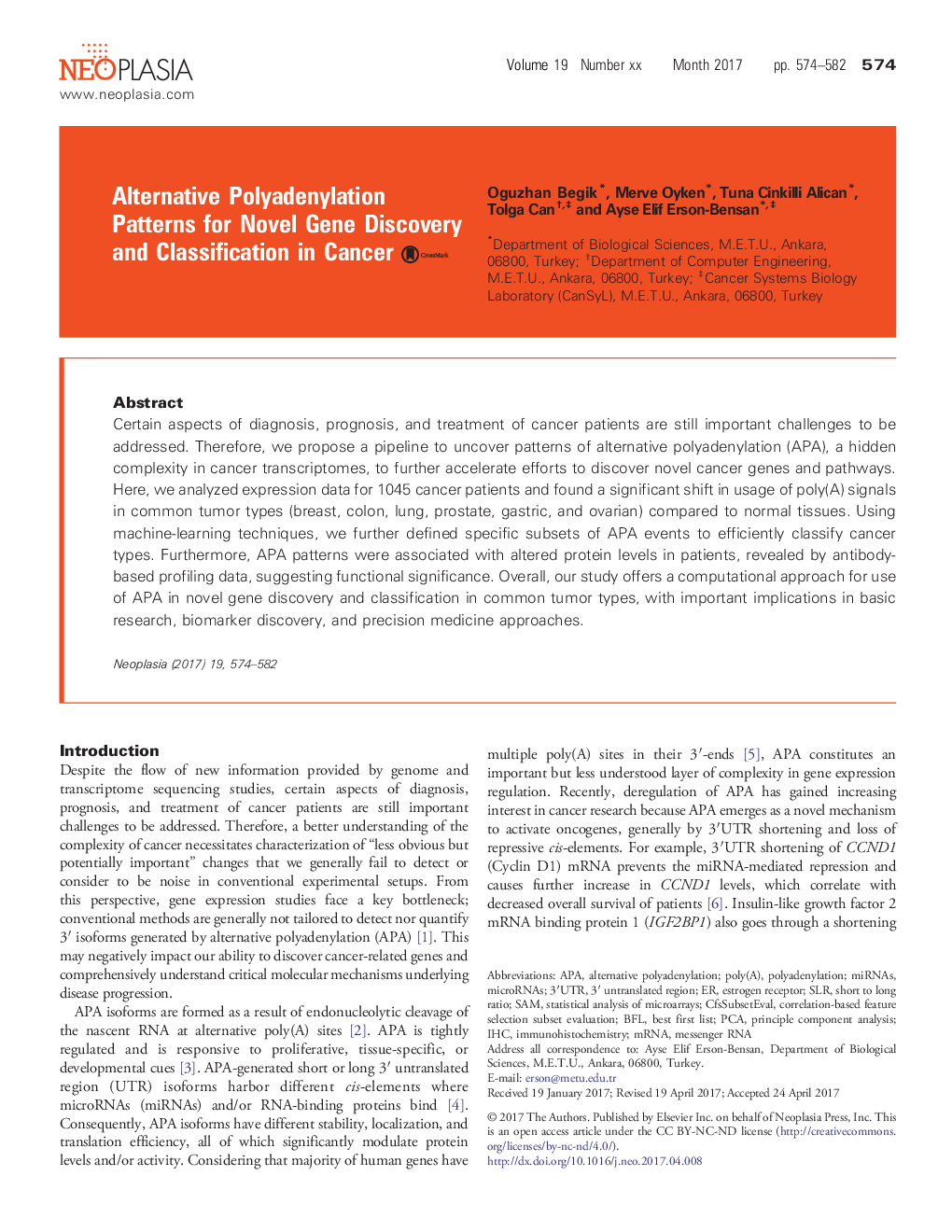| Article ID | Journal | Published Year | Pages | File Type |
|---|---|---|---|---|
| 8456931 | Neoplasia | 2017 | 9 Pages |
Abstract
Certain aspects of diagnosis, prognosis, and treatment of cancer patients are still important challenges to be addressed. Therefore, we propose a pipeline to uncover patterns of alternative polyadenylation (APA), a hidden complexity in cancer transcriptomes, to further accelerate efforts to discover novel cancer genes and pathways. Here, we analyzed expression data for 1045 cancer patients and found a significant shift in usage of poly(A) signals in common tumor types (breast, colon, lung, prostate, gastric, and ovarian) compared to normal tissues. Using machine-learning techniques, we further defined specific subsets of APA events to efficiently classify cancer types. Furthermore, APA patterns were associated with altered protein levels in patients, revealed by antibody-based profiling data, suggesting functional significance. Overall, our study offers a computational approach for use of APA in novel gene discovery and classification in common tumor types, with important implications in basic research, biomarker discovery, and precision medicine approaches.
Keywords
Related Topics
Life Sciences
Biochemistry, Genetics and Molecular Biology
Cancer Research
Authors
Oguzhan Begik, Merve Oyken, Tuna Cinkilli Alican, Tolga Can, Ayse Elif Erson-Bensan,
